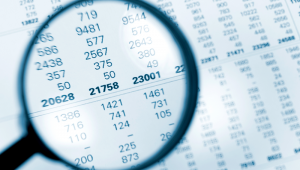Speaking to PF, Daniel Susskind said the professions, including law, medicine and teaching, would be revolutionised by a greater use of technology.
Ahead of his address to the CIPFA conference, Susskind, economics lecturer at Balliol College, Oxford, and author of The Future of the Professions with Richard Susskind, said these areas faced “two futures”, with technology playing an increased part in both.
“One is reassuringly familiar for most professionals. It is where professionals use technology to streamline and optimise the traditional ways in which they’ve worked. “Then there’s a second future which is very different – where technology is not just used to streamline and optimise the way in which professionals work, but it actively displaces the work of traditional professions and takes on tasks that we have traditionally only associated with
a particular group of people trained in a particular type of way.”
Susskind said these two futures were likely to develop in parallel in the next decade. “I think the challenge for any profession is to engage with that second future and use it to solve the sort of problems that traditionally have only been solved in a very particular way,” he told PF.
This was likely to benefit the public sector, where many professions, including those vital to service delivery, were “creaking”.
“The promise of this technology is to make available – often in ways that are far more affordable and far more accessible – the sort of expertise that has traditionally been a very scarce resource that only the most privileged in society have been able to make use of.
“So, for the public sector, I think that consumer element is very important – these technologies offer us ways to solve problems that are more affordable and more accessible than the traditional ways in which they have been solved. It means the public sector ought to be particularly excited and particularly receptive to these changes,” Susskind said.
Accountants must prepare themselves for new skills and roles as their work gets “disaggregated” by technology – jobs will be split up and component parts will be carried out by different people or automated.
Roles like data scientist and process analyst were likely to become vital, he said. “One of the most interesting trends that
we see across the professions is the rising importance of data. One of the roles we identify is the role of data scientist. Being able to understand and engage with large bodies of data is a role that is becoming increasingly important,” he added.
“In the accountancy profession, where the raw material of accountants is always data, this is particularly important.”
Daniel Susskind will be speaking at the CIPFA conference on ‘The future of the professions’ on 14 July




















